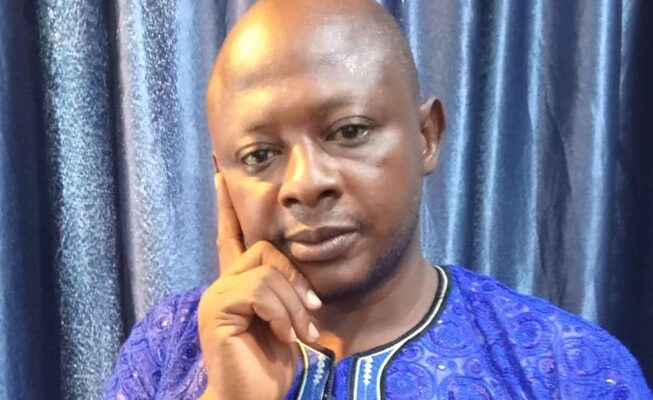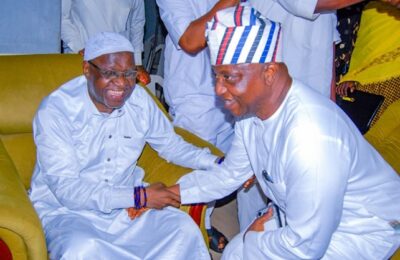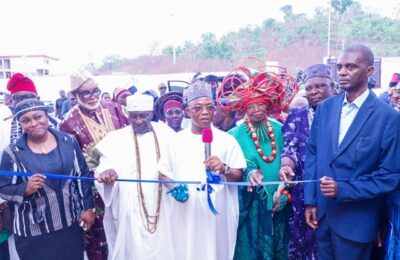“Where there is no vision, the people perish.” — Proverbs 29:18
“Politics is too serious a matter to be left to the politicians.” — Charles de Gaulle.
“The world will not be destroyed by those who do evil, but by those who watch them without doing anything.” — Albert Einstein
As the global tide of reform, inclusion, and democratic evolution sweeps across continents, Nigeria—the sleeping giant of Africa—teeters dangerously on the edge of political amnesia and cultural fracture. The average Nigerian no longer believes in the sanctity of the INEC, ballot or the sincerity of the leader. A sense of betrayal now clutches the soul of the citizenry like an old wound that refuses to heal. For many, Nigeria is not at a mere political crossroads—it is at a defining juncture where the soul of the nation is either redeemed or finally relinquished.
What was once a land teeming with hope has now become a breeding ground for cynicism and despair. According to a 2024 Afrobarometer survey, over 70% of Nigerians do not trust their elected officials, and more than 60% believe democracy is failing them. “It’s not that Nigerians hate democracy,” says Dr. Ayo Olukotun, a respected political scientist, “they just feel democracy hates them.” The disconnect is glaring. Elections are held, but power rarely changes hands with integrity. Budgets are read, but hunger deepens in the homes of everyday people. Speeches are made, but roads are death traps. What then is democracy, if not a masquerade stripped of its dignity?
Leadership in Nigeria has become a ritual of deception. Politicians speak the grammar of democracy but act in the dialect of dictatorship. It is no surprise that institutions are decaying. Diversity, once our national asset, is now manipulated into division. Inclusion, which should bind us, is turned into an instrument of selective appointments. Equity is mocked by political nepotism. The dividends of democracy are swallowed in corruption that now wears agbada and takes selfies with power.
Chimamanda Ngozi Adichie once said, “ We teach girls to shrink themselves… We say to girls, you can have ambition, but not too much.” But in Nigeria, it is not only girls being taught to shrink—it is the poor, the voter, the truth-teller, and the patriot. The nation has become a choir of silenced voices, where only the rich sing solos of progress. The poor? They’re asked to clap from the shadows.
In the North, insecurity has become a way of life. In the South, economic sabotage and infrastructural neglect threaten generations unborn. In the East, secessionist agitations remain unresolved because the government responds to grievance with guns instead of governance. In the West, ethnic supremacists embolden themselves while federal character is reduced to ethnic arithmetic. Everywhere, the story is the same: frustration has become our national anthem.
As Bishop Matthew Hassan Kukah puts it, “Nigeria is practicing democracy without democrats.” The system is infected with leaders who lack the moral stamina to build, but possess the political appetite to loot. “A democracy is only as good as the people who manage it,” warned Prof. Wole Soyinka. “And Nigeria’s managers are drunk on power and allergic to progress.”
International observers, too, are growing weary. A recent report by Freedom House downgraded Nigeria from “Partly Free” to “Not Free” in terms of civil liberties, noting increasing crackdowns on protests, press freedom, and judicial independence. Nigeria is fast becoming a textbook case of a failing democracy with a façade of elections. Democracy, once defined by participation and representation, has been reduced to a four-year theatrical performance where the poor elect the rich to misrepresent them.
The Igbo have a saying: “Eziokwu bu ndu” (Truth is life).
If Nigeria must be saved, then truth must return to our politics, not just as rhetoric, but as a roadmap. We need leaders who are servants, not scavengers. We need a political renaissance driven by ideals, not idols. We need voters who understand that a ₦1,000 bribe today is ₦1,000,000 worth of potholes, unpaid salaries, and kidnappings tomorrow.
The youth, who represent over 60% of the population, must stop waiting for a messiah. They must become the movement. Like the EndSARS protests momentarily revealed, power listens when people stand. But protests without political participation is like smoke without fire—it dissipates. Let PVC machines be available in all the polling units for registration. Afterwards, we citizens need to register, vote, protect the vote, and, above all, become candidates ourselves. As the late Dora Akunyili once said, “We must rise up to save Nigeria, or we perish with it.”
The global world is watching. As cultural currents shift towards pluralism and inclusive governance, Nigeria must not remain stuck in the mud of ethno-religious parochialism and recycled failure. We are too blessed to be this broken. We are too large to be this little. We are too important to Africa’s future to be irrelevant in the present.
History is whispering—louder than ever before. The walls of Nigeria’s future are being painted either with colours of revival or the rust of regret. Our leaders must choose. Our citizens must act. And our God must be sought—not as a political slogan, but as a divine partner in rebuilding this fallen tower of Babel.
Let it be known, that in the year 2025, Nigerians were not just observers of history, but shapers of destiny.
The test of our progress is not whether we add more to the abundance of those who have much; it is whether we provide enough for those who have little.” – Franklin D. Roosevelt
“When the righteous are in authority, the people rejoice.” – Proverbs 29:2
– Inah Boniface Ocholi writes from Ayah – Igalamela/Odolu LGA, Kogi state.
08152094428 (SMS Only)




